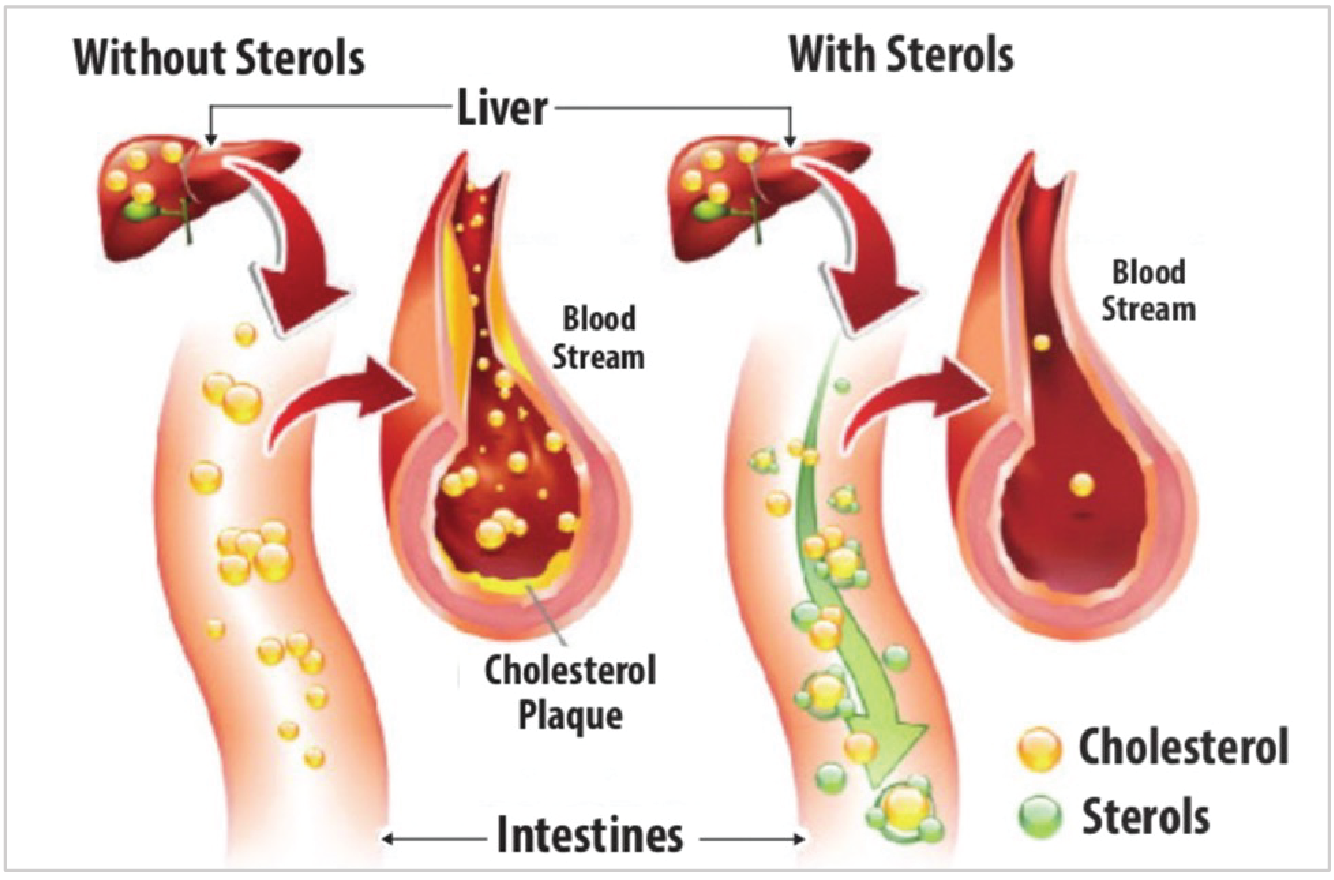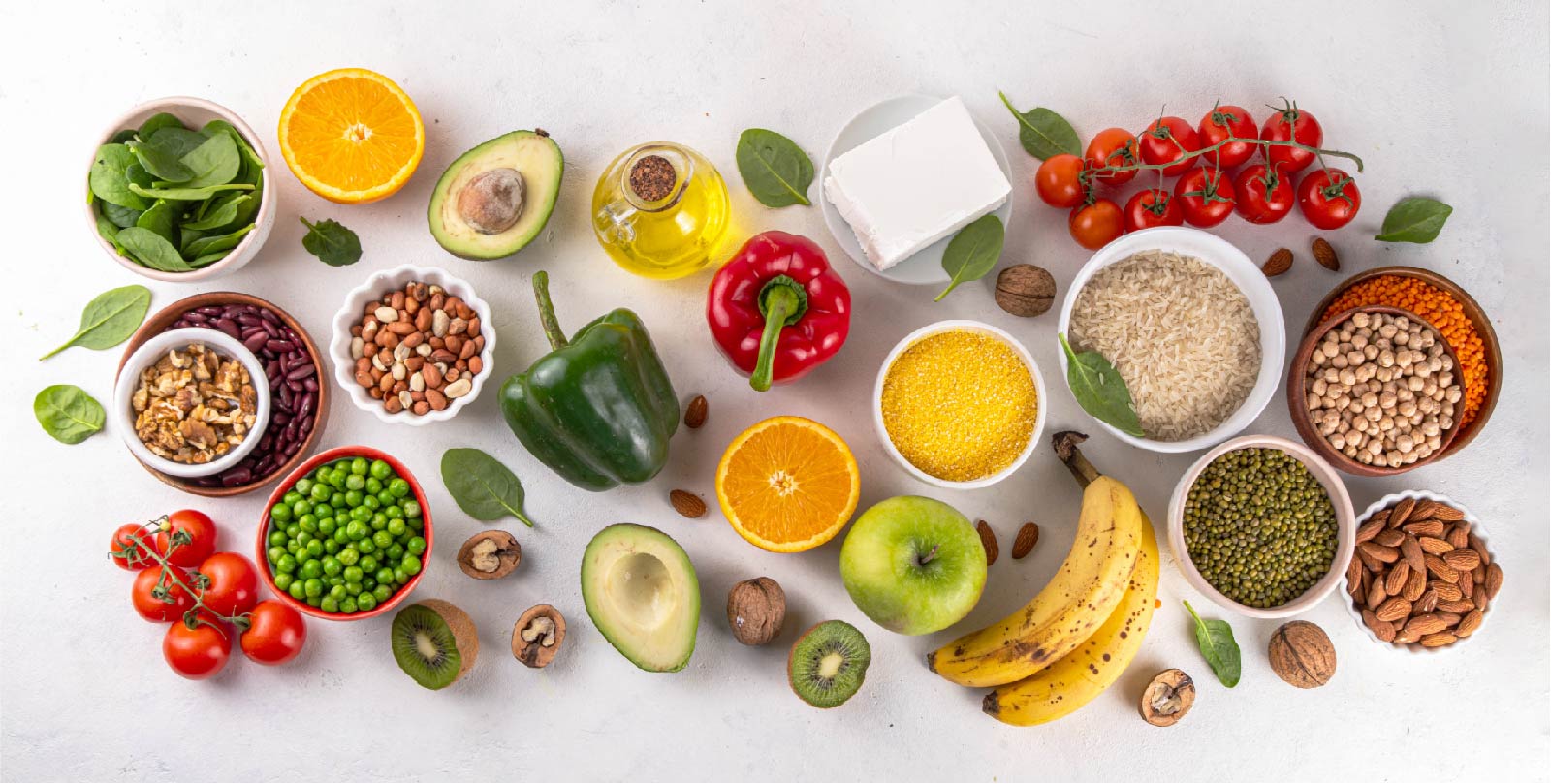Cardiovascular health concerns are very prevalent in the United States, with unhealthy cholesterol levels being a major risk factor. In addition to regular exercise, eating a healthy diet and maintaining a healthy weight, incorporating certain nutrients into a wellness routine is a simple step that individuals can take to improve heart health.
One such example is phytosterols—bioactive compounds found in plants that can support healthy cholesterol levels. Despite their nutritional value, phytosterols are found in relatively low amounts in the typical Western diet. As such, phytosterol supplementation can be a powerful addition to a heart-healthy diet. Let’s explore how they work in the body and a few of the more common phytosterols.
What are phytosterols and how do they work?
Phytosterols (also called plant sterols or plant stanols) are naturally occurring compounds found in a wide variety of plants, including fruits, vegetables, nuts, seeds, and whole grains. These compounds play an important role in maintaining good health, particularly when it comes to managing cholesterol. That is because they resemble cholesterol in their molecular structure, allowing them to compete with dietary cholesterol for absorption in the digestive system and block some of the cholesterol from being absorbed into the bloodstream. As less cholesterol is absorbed, the liver compensates by pulling more cholesterol from the bloodstream to use in the digestive process. This results in a reduction of LDL cholesterol levels circulating in the body.

Beyond Cholesterol Support
While there are over 200 different known phytosterols, the most well-known are beta-sitosterol, campesterol and stigmasterol. In addition to assisting with the maintenance of healthy cholesterol levels, evidence shows a range of health benefits attributed to phytosterols:
- Beta-sitosterol: One of the main sterol compounds found in many plants, beta-sitosterol possesses various biological actions such as anxiolytic effects, lipid lowering effects, antioxidant and anti-diabetic activities. Beta-sitosterol may also help promote healthy prostate function. Research suggests that phytosterols naturally bind to prostate tissues, where they exert inflammation-modulating activity and influence cell signaling to help promote normal cell growth.
- Campesterol: Besides having anti-inflammatory properties, campesterol is known to have a likeness for LDL cholesterol and may be able to lower serum levels. Campesterol helps promote healthy lipid metabolism, the process of digesting and absorbing dietary fats. Campesterol may also have some value to lower the chance of cardiovascular issues.
- Stigmasterol: This plant sterol has antioxidant properties, allowing it to help neutralize harmful free radicals and promote healthy cells. It may also even be used to help control inflammatory matters throughout the body, particularly the skin.
As with any supplement, it’s important to consult with a healthcare professional prior to adding phytosterols into a wellness routine.
References
Babu S, Jayaraman S. An update on β-sitosterol: A potential herbal nutraceutical for diabetic management. Biomed Pharmacother. 2020 Nov;131:110702. Epub 2020 Aug 31. PMID: 32882583.
Berges RR, et al. Randomised, placebo-controlled, double-blind clinical trial of beta-sitosterol in patients with benign prostatic hyperplasia. Beta-sitosterol Study Group. Lancet. 1995 Jun 17;345(8964):1529-32.
Antwi AO, Obiri DD, Osafo N, Essel LB, Forkuo AD, Atobiga C. Stigmasterol Alleviates Cutaneous Allergic Responses in Rodents. Biomed Res Int. 2018;2018:3984068. Published 2018 Jul 24.

